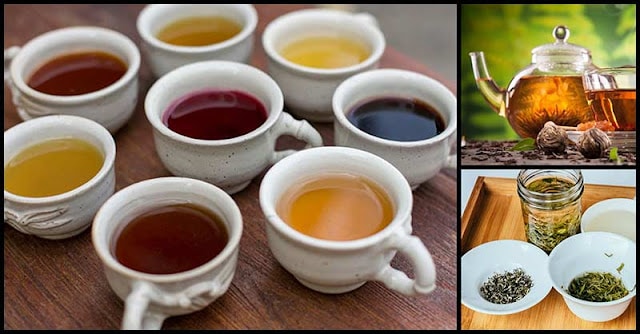Wondering why teas come in different colors and taste? What makes green tea green or black tea green or black? Well, it’s all about when it is harvested and how the leaves are treated after it is picked (the degree of oxidation or fermentation).
Tea, with over 3,000 varieties, is one of the most consumed beverages in the world. This aromatic drink is prepared by steeping fresh leaves or buds of Camellia Sinensis plant in hot water.
The Camellia Sinensis plant is native to Asia but is currently cultivated around the world in tropical and subtropical areas. It contains polyphenols which have anti-inflammatory, antioxidant, anti-cancer, and cardioprotective effects. According to experts, there are two well-known polyphenols in teas which are responsible for the range of health benefits it can provide to our body. These are epigallocatechin-3-gallate (EGCG) and epigallocatechin (EGC), compounds that are famously-known due to their ability to suppress the growth of different types of cancer.
Here are some of the teas produce from C. sinensis and the many health benefits they can offer.
Green Tea
Green tea is prepared by steaming and pan-frying the leaves of Camellia sinensis and then drying them. Doing this inactivates native microbes and an enzyme called polyphenol oxidase, which catalyzes their oxidation. This tea contains important molecules called polyphenols which are responsible for some of its health benefits such as preventing inflammation and swelling, protecting cartilage between the bones, lessening joint degeneration, lowering cholesterol levels, and decreasing the risk of certain cancers (breast, ovarian, prostate, skin, stomach, etc). The major polyphenols in green tea are flavonoids, the most active of which are catechins and epigallocatechin gallate (EGCG) which function as powerful antioxidants that help us prevent heart diseases and fight free radicals that damage the cells.
Black Tea
Black tea is produced from fully oxidized tea leaves. It has a stronger flavor and contains more caffeine than other teas, but less caffeine than coffee. This type of tea is the most suitable for supporting heart health. Groups of polyphenols, including catechins, theaflavins, and thearubigins, are the main sources of antioxidants in black tea and may promote overall health.
Aside from these, studies have also found that flavonoids, a group of antioxidants, are also present in black tea. They can help us lower our risks for heart disease, including high blood pressure, high cholesterol, elevated triglyceride levels, and obesity.
White Tea
As compared to green and black tea, white tea is the least processed. It is made from un-oxidized leaves and buds. This part of C. sinensis is picked just before leaves fully open, while they are still covered with white hairs. It contains high amounts of polyphenols which possess antiviral, anti-bacterial and anti-fungal properties. White tea helps relax blood vessels, prevents hypertension, boost immunity and prevent bad cholesterol from becoming oxidized. Moreover, it also has an anti-cancer effect, can help combat signs of aging, and can protect against osteoporosis.
Oolong Tea
The oolong tea process starts with the leaves of Camellia sinensis withering under the sun. The oxidizing period is shorter as compared to the black tea, as it is stopped once the leaves give off a fruity fragrance (though note that the rate of oxidation in oolong teas varies greatly on the variety). The leaves are then rolled and fired. One way to think of oolong tea is halfway between green tea and black.
This type of tea has a polyphenolic compound that may be positively linked to controlling the metabolism of fat in the body and reducing obesity. It can help control diabetes, improves bones health, relieves irritation and chronic skin problems, and has anti-cancer potential.
Kombucha
Kombucha is a fermented drink made from sweetened black or green tea and a specific culture known as a SCOBY – symbiotic culture of bacteria and yeasts. The bacteria and yeasts convert the sugar into ethanol and acetic acid thus giving kombucha its distinctive sour taste. The fermentation process infuses the drink with probiotic bacteria which help improve digestion, shield the protective coating inside the stomach to prevent and heal stomach ulcers, and help prevent other inflammatory diseases. Moreover, studies have found that kombucha can help improve our mental and liver health, aids in managing Type 2 diabetes and lower our risk of cancer, heart disease, and bacterial infections.
All of these teas can boost our overall health. All we need to do is to choose the real ones and avoid overly sweetened tea. Enjoy each cup of it!









